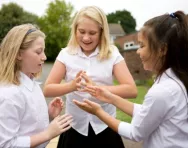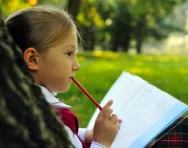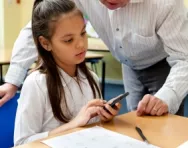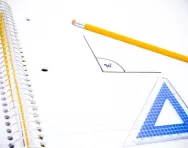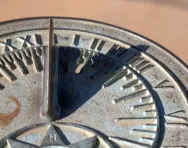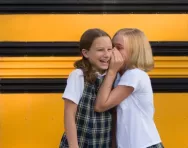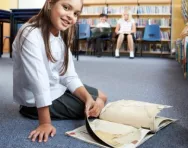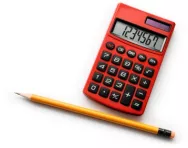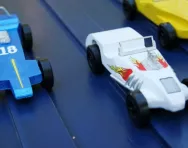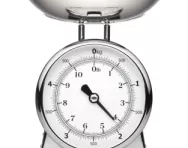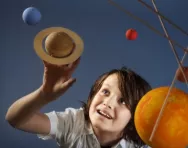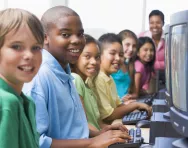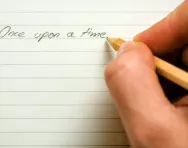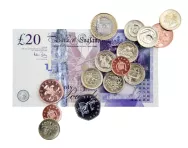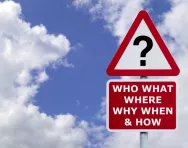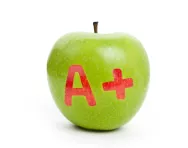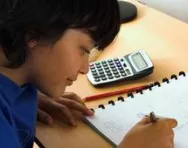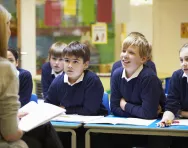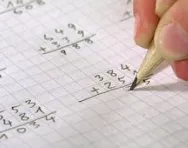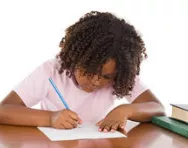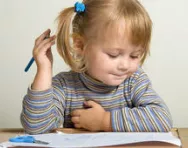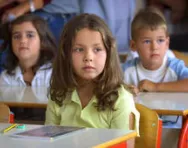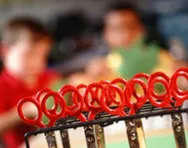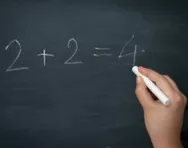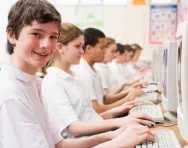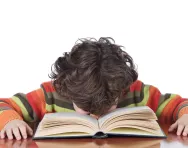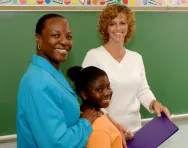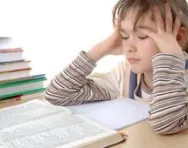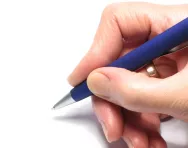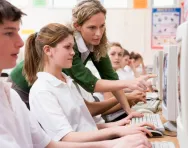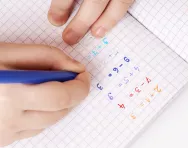Film-making and animation fun for children
How can you stimulate your primary-school child's interest in literacy and storytelling? From script-writing to editing, these hands-on movie-making activities are perfect for older children to have a go at. You might even help inspire the next Danny Boyle!
How your child develops in Key Stage 2
What changes can you expect to see in your child over the next four years?
What your child learns in Key Stage 2 English
Your guide to what your child will learn in years 3, 4, 5 and 6 in English.
What your child learns in KS2 maths curriculum
Think maths involves just adding, subtracting and times tables? Think again. Here’s a rundown of all the things your child will be learning in Years 3 to 6.
What your child learns in Key Stage 2 science
Want to know more about what your child gets up to in science class at school? Here’s your guide to the topics they’ll cover.
How your Year 3 child develops
As your child moves from infants to juniors, how will they develop and change in Year 3?
Year 3 English: What your child learns
Your guide to what your child will be taught in English lessons in Year 3 as they move into KS2.
Year 3 maths: what your child learns
Want to know what your child will be learning in maths lessons this year? Read on to discover the Year 3 maths curriculum.
Year 3 science: what your child learns
Got a mini Einstein in the family? Here’s what they will be learning in Year 3 to help develop their scientific knowledge.
How your Year 4 child develops
Sociable and independent – here’s what to expect from your child in Year 4.
Year 4 English: what your child learns
Unsure what your child gets up to in English lessons? Get clued up with our guide to the Year 4 English curriculum.
Year 4 maths: what your child learns
Want to know what subjects will be the focus in maths lessons in Year 4? Find a detailed breakdown here.
Year 4 science: what your child learns
Find out what is taught in Year 4 science and how you can build on your child’s learning at home.
How your Year 5 child develops
With the teenage years beckoning, what can you expect from your child in Year 5?
Year 5 English: what your child learns
Whether your child is a bookworm or doesn’t enjoy English at all, knowing what they’re learning in school means you can give them extra support at home. Here’s your guide to what they’re being taught as part of the Year 5 English curriculum.
Year 5 maths: what your child learns
From probability to polygons, find out what your child will learn about in maths in Year 5.
Year 5 science: what your child learns
Your guide to what’s covered in the year 5 science curriculum.
How your Year 6 child develops
As they look forward to the move to secondary school, what is changing for your Year 6 child?
Year 6 English: what your child learns
Find out what your child will be taught in Year 6 English and support their learning at home so they feel confident in their skills, ready for the move to secondary school.
Year 6 maths: what your child learns
Your child might be becoming quite the whiz with numbers by now. Find out how their maths knowledge will be developed in year 6.
Year 6 science: what your child learns
Your guide to what your child’s Year 6 teacher will cover in science lessons.
School reports decoded
It’s the end of term and that means one thing – school report time. But what exactly do those cryptic comments in your child’s report mean? Jessica Powell gets teachers to explain.
Apostrophes – get them right every time
Apostrophes are tricky things. Do they imply ownership or are they there to denote a missing letter? Do they go before the ‘s’ or after? Jackie Cosh explains how to help your child master them.
Do boys learn in a different way to girls?
Research shows boys are lagging behind girls in reading, writing, maths and science. If the teaching is the same, is gender the issue? Emily Organ explores boys' achievement in the classroom.
How is religion taught in schools?
Every school has to teach religious education and hold an act of worship each day. But what happens if you don’t like what’s on offer? In this extract from TheSchoolRun's The Essential Guide to Primary School, we explore what your child learns and your rights as a parent.
How to help with maths homework: a non-expert's guide
Maths is one subject that fills many parents with dread - but is it really so hard? We talk to author and deputy head teacher Matt Revill to find out how parents can help their children's maths learning.
Five steps to success in developing your child’s handwriting
In a world where technology is rapidly taking over, teaching children handwriting skills is still as important as it ever was. Best-selling author Bernadette Tynan offers five steps to handwriting success.
Handwriting practice makes perfect
Why is handwriting practice so important, and how can you help your child to learn? Find out in our guide.
How debating can benefit your child
From improving speaking and listening skills to building self-esteem, learning to debate could have many benefits for your primary-school child. Lucy Dimbylow finds out more.
The primary design and technology curriculum
Is your child a budding designer? We take a look at what design and technology lessons involve.
Learning numeracy at home
All around us are a wealth of mathematical problems just waiting to be solved. Here’s how to help your child extend their numeracy skills at home.
10 steps to better handwriting
From confiding in a diary to writing requests for treats, these everyday strategies will help your child improve their handwriting at home.
How to survive starting secondary school
Want to help your child prepare for their first term at secondary school? Sam Stephenson, now in Y8, shares the information he wishes he'd known this time last year.
Is your child getting enough sleep?
Is your child overtired – or not tired enough? Here’s how to make sure they’re getting the right amount of sleep for their age.
Parent teacher meeting tips from real parents
Whether you’re preparing for your first meeting, or want to improve on past experience, these top tips will help you know what to get out of your time with your child’s teacher.
Boost your child's confidence with glasses
Making the transition to wearing glasses doesn’t have to be traumatic! We get tips from parents and experts on how to make the experience stress-free and confidence-building.
Homework tips for children with dyslexia
The British Dyslexia Association shares tips to help make doing homework a calm and productive process for your dyslexic child.
10 common secondary school application mistakes
Applying for a job is a walk in the park compared to choosing, applying for and getting your child into your preferred secondary school. In the next few frantic weeks, half a million families will be putting pen to paper – so make sure your application form doesn’t contain any of their common mistakes.
13 things you must look for during a secondary school visit
Starting the secondary school application process and feeling a bit clueless? We quizzed the experts (and the parents who’ve been there and done it) to find out what you should look out for when touring schools.
What is partitioning?
Not sure what your child means when they talk about partitioning numbers in maths problems? We explain the method, and how your child will use it.

